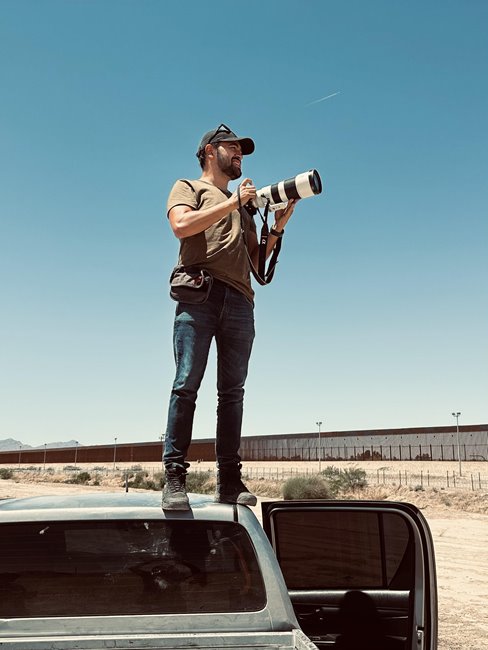Venezuelan asylum seekers and migrants protest against imprisonment and poor conditions on the roof of the entrance of Siglo XXI, a migratory station in Tapachula, Mexico. NGOs have expressed concern about violations of human rights and compromised legal procedures at the migratory stations, where they are subject to expedited deportations. This group of migrants was sent back to Venezuela on a charter flight.
Since 2019, Mexico's immigration policies have undergone a significant shift, transforming from a nation historically open to migrants and asylum seekers at its southern border to a country that enforces stringent immigration policies. A series of compounding factors – evolving immigration and foreign policies under successive US administrations, the imposition of COVID-19 protocols, and political and economic instability across Central and South America – contribute to an ongoing crisis at Mexico’s borders. Furthermore, US implementation of expedited deportation policies, initially under the guise of COVID-19 concerns through "Title 42," and later under "Title 8," which criminalized repeated attempts to cross the border, has left thousands stranded in Mexican border cities. These areas, often under the control of corrupt authorities and drug cartels, force migrants and asylum seekers to wait indefinitely in improvised camps where they are exposed to heightened risks of violence and precarious living conditions.
The collaboration between the US and Mexico to deny asylum and enforce harsh migration policies has fortified barriers for those seeking refuge. The physical, psychological, and administrative obstacles erected by these policies symbolize the shutting of doors once open to those most in need of safety.
Drawing from his own first-hand experience of migrating from his native Venezuela to Mexico in 2017, photographer Alejandro Cegarra initiated this project in 2018. His work documents the plight of deeply vulnerable migrant communities with respect and sensitivity. Through his photography, he hopes to foster greater understanding, empathy, and solidarity toward those on the frontlines of the global migration crisis.
Are you a photographer and/or passionate about press freedom? Sign up for our newsletter to stay updated on our annual contest and to hear about exhibitions near you.

